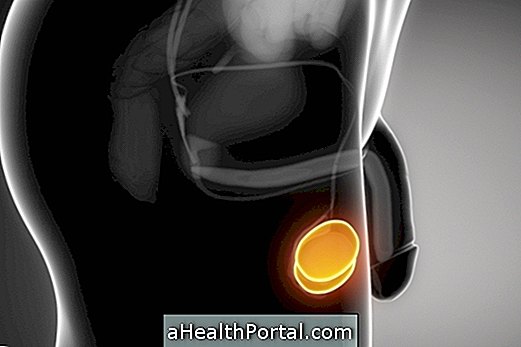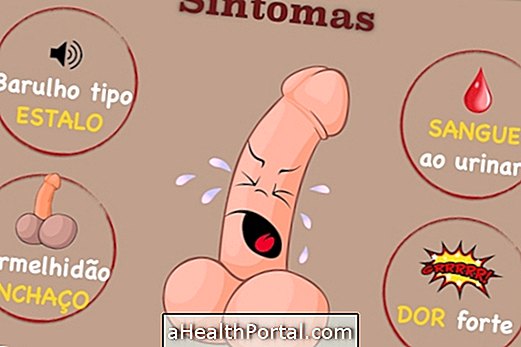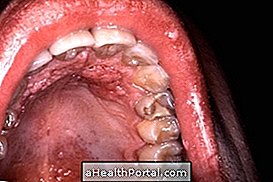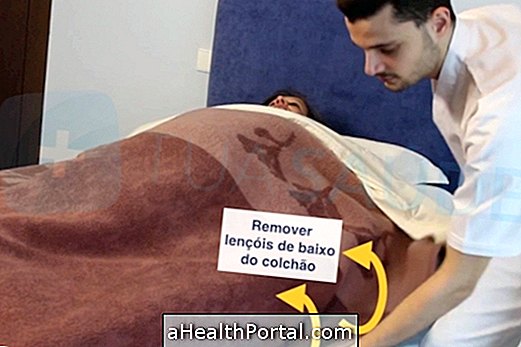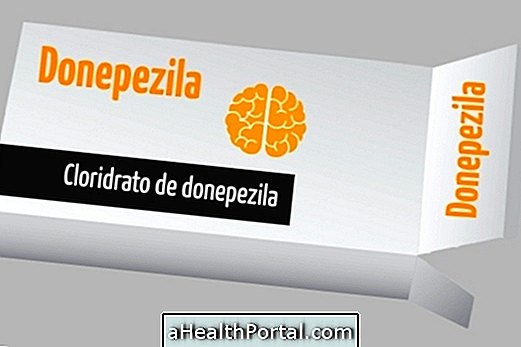Treatment for syphilis is usually done with injections of Penicillin that may be indicated by the gynecologist, obstetrician or infectologist.
When the wound that does not bleed and does not hurt is still present it is sufficient to take 1 dose of penicillin to cure syphilis, but when it comes to secondary or tertiary syphilis, more doses are needed. Injections are applied to the buttock once a week, depending on the medical orientation, but when it comes to tertiary syphilis or neurosyphilis, hospital admission is necessary because it is a more advanced disease and has other complications involved.

In case of allergy to penicillin one should opt for desensitization to penicillin because there are no other antibiotics capable of eliminating treponema palladium . However, in some cases the doctor may prescribe doxycycline, tetracycline or ceftriaxone.
Thus, treatment for syphilis can be done with:
| Phase of the disease | Treatment | Examination to confirm cure |
| Primary syphilis | Single dose of Benzetacil | VDRL at 3, 6 and 12 months |
| Secondary syphilis | 1 injection of Benzetacil per week for 2 weeks | VDRL at 3, 6, 12 and 24 months |
| Tertiary syphilis | 1 injection of Benzetacil per week for 3 weeks | VDRL at 3, 6, 12, 24, 36, 48 and 72 months |
| Neurosyphilis | Crystalline Penicillin for 14 days | VDRL at 3, 6, 12, 24, 36, 48 and 72 months |
| In pregnancy | Amoxicillin, Ampicillin or Erythromycin for 15 to 30 days | VDRL every month during gestation and every 3 months, after delivery, until the cure is proven |
| Congenital syphilis | Penicillin 2x daily for 7 days | VDRL with 1, 3, 6, 12 and 18 months |
After the penicillin is taken, a reaction that causes fever, muscle pain, headache, rapid heartbeat, low breathing and pressure drop is common. These symptoms may remain for 12 to 24 hours and should only be treated with Paracetamol.
Treatment for syphilis in pregnancy
Treatment for syphilis in pregnant women should only be done with antibiotics derived from Penicillin, such as Amoxicillin or Ampicillin, since other antibiotics can cause malformations in the fetus.
If the pregnant woman is allergic to Penicillin, the doctor may recommend taking the treatment after pregnancy, if the disease is latent or using Erythromycin as tablets for 15 to 30 days, depending on the week of gestation.
See syphilis symptoms and treatment for: Treatment of syphilis in pregnancy.
Treatment for congenital syphilis
Treatment for congenital syphilis should be guided by the pediatrician and is usually initiated shortly after birth with penicillin directly into the vein every 12 hours in the first 7 days of life.
With the start of treatment for congenital syphilis, it is normal for some newborns to develop symptoms such as fever, rapid breathing, or increased heart rate, which can be controlled with other medications such as Paracetamol.
Learn more about treatment in: Treatment for congenital syphilis.
Care at any stage of the disease
During treatment, or soon after the diagnosis of syphilis, the patient should have some care such as:
- Inform your partner or partner to take the disease test and start treatment if necessary;
- Avoid close contact during treatment, even with a condom;
- Get tested for HIV because there is a high risk of being infected.
Even after treatment, the patient may return to catch syphilis and it is therefore important to continue using condoms throughout intimate contact to avoid being re-contaminated with syphilis or other sexually transmitted diseases.
Signs of improvement of syphilis
Signs of improvement in syphilis occur about 3 to 4 days after initiation of treatment and may include increased well-being, reduction of the gullet, and wound healing, for example.
Signs of worsening syphilis
Signs of worsening syphilis are more common in patients who do not do the treatment as indicated by the physician and include fever above 38 ° C, joint and muscle pain, decreased muscle strength and progressive paralysis.
Complications of syphilis
Complications of syphilis occur primarily in patients with weakened or weakened immune systems, including meningitis, hepatitis, joint deformity, and paralysis.

